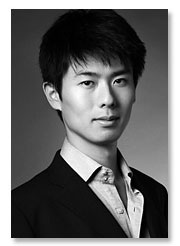To all of my listener's I apologize for the several-week delay in releasing another recording. Sometimes life becomes too busy for personal hobbies :)
My latest release happens to be my first recording of a work by
Claude Debussy (believe it or not). It is the
first of two arabesques (Deux Arabesques). This is a well-known composition by Debussy, who is an impressionist composer. It is one of his earlier works, and is actually not very stylistic of the music that granted Debussy's title as an impressionist composer. Nonetheless it has remained a favorite amongst classical listeners.
This piece is often heard at group or student recitals. It is an all-too-common mistake (in my opinion) to hear this piece played at more of an Allegro tempo than the indicated Andantino. I've tried to maintain a strolling pace in this recording although it still feels a bit rushed at times.
I am dedicating this recording to my dear friends, the Robertsons. While I was living and serving as a volunteer missionary in Japan (for my
church), the Robertsons acted as my mentors, guardians, friends, and stand-in parents. With hundreds of volunteers serving under their care and direction, they still took the time to make each one of us feel important and loved. They gifted true charity to everyone they encountered; and brought renewed hope, and a warm heart when people needed it most. So it is with utmost sincerity and respect that I dedicate the
recording of this Arabesque to them.
For additional commentary and to download this recording please visit
this page of my Lisztonian site. For other recordings or to download all of my music, please go directly to
http://www.lisztonian.com/.
As has been the case with all of my recent recordings, this piece was recorded on a studio upright. Much of musicality is lost to the limitations of the instrument. To those of you who have enjoyed listening to my recordings, please consider signing your name to the lid of my future piano by making a donation. I am still a long way from reaching my goal, but I am hopeful that the day will eventually come that I can be recording free music on a new
Steinway Model B. Regardless of whether or not you choose to donate,
THANK YOU for your support and for enjoying the music that I provide.
Here is a streaming version that you can listen to now of this latest recording (
Two Arabesques for Piano (#1) by
Claude Debussy). You may also subscribe on my
iTunes page so that you don't miss anything new!


